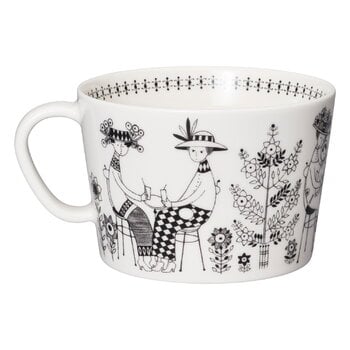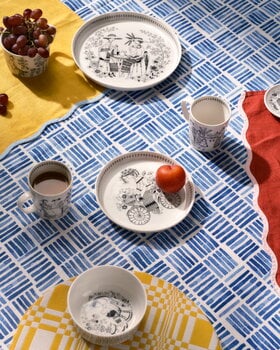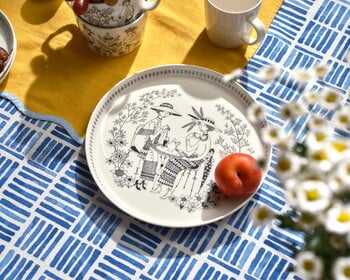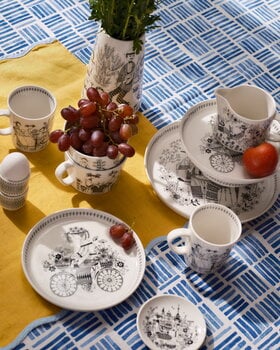Arabia’s Emilia tea cup is adorned with a delightful decoration designed by Raija Uosikkinen. She originally created the enchanting Emilia decoration in 1957, and the series was in Arabia's production until the year 1966. Emilia brought a fascinating contrast to the sleek and simple designs of the 1950s, as it was decorated with vines and beautiful details, yet tamed by its black-and-white colouring. Arabia re-launched the enchanting Emilia decoration in 2023.
The story goes that the Emilia motifs were inspired by the designer's own Aunt Selma, who lived a relaxed life in America. Elegantly dressed characters spend sunny days in the garden, on a picnic and lying in a hammock. Each part of the Emilia tableware conveys a fabulous breeze of holiday spirit and the leisurely feel of days off.











